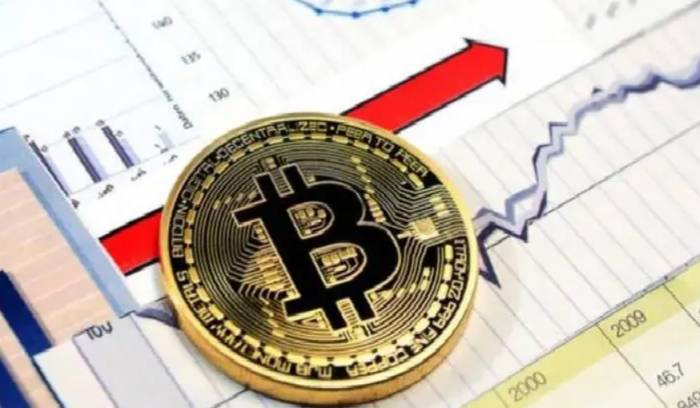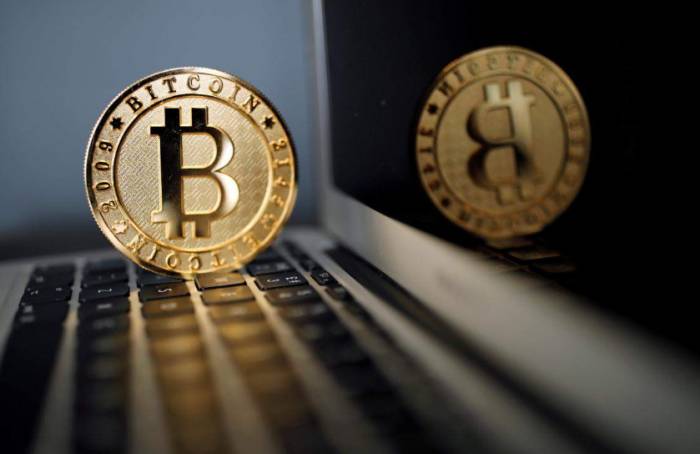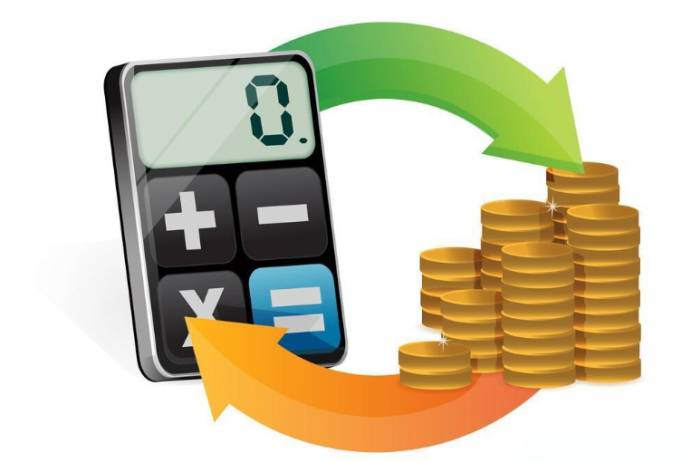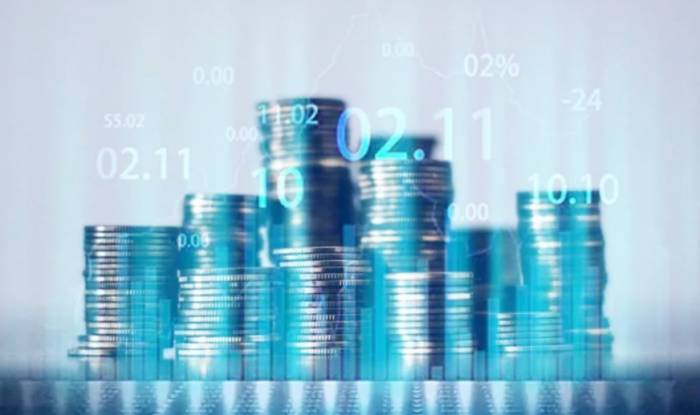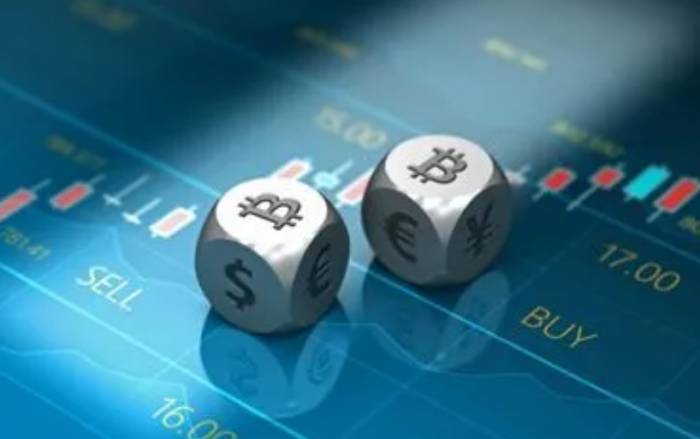Out of 10 people who trade, 9 lose and 1 gains. Most people, when communicating with me, are asking how to solve the problem of losses.
Many people say, "Everyone else writes about how to make money, but you always write about losing money."
Everyone in the trading market has the same feeling: sometimes they make a few profits in a row, but one loss wipes them all out. So, solving 10 problems of making money is not as good as solving 1 problem of losing money.
Just like the most famous barrel theory, if you fix a short plank, the water will not leak anymore.
Today, I will combine my own experience to talk about the 10 reasons why most people lose money. Everyone can check themselves and face their own trading behavior, and then it's not far from making a profit.
1. Holding positions without stopping losses
On the road to loss, holding positions can take the biggest blame.
Trading novices have not lost money, have not experienced large one-sided positions, and are ignorant of the cruelty of the market. When they encounter short-term small losses, they are happy, but when they lose 30%, their hearts are a little panicked. When they lose 50%, they plead for mercy, and when they lose 80%, they are completely confused.
So novices become trading veterans.
Trading veterans have experienced blowing up their accounts and have also experienced holding positions through deep falls, so fear and luck psychology fight in their minds, becoming contradictory and hesitant, silently reciting: "Don't stop losses on this position, hold on and the market will turn around, I will close the position, and I will strictly stop losses next time, Amen."The outcome of the first, second, and third attempts finally led to a blowout or a significant loss, leaving one bewildered and with a buzzing head.
Both foreign exchange and futures involve leverage; even with just 10 times leverage, a 10% adverse market movement can result in a margin call. Even if the market moves 5% against the position and the account doesn't get a margin call, when you're down 50%, you're at a loss and start trading recklessly, which marks the beginning of losses.
Thus, not setting a stop loss inevitably leads to losses.
Why do people like to hold positions without a stop loss? Because the market often trends upwards or downwards with fluctuations. By not setting a stop loss and holding on, one might ride out the fluctuations and turn a loss into a profit, which feels great. However, after getting away with it 10 times, a single major trend in the opposite direction can wipe you out.
So, holding positions without a stop loss is not a crime, but whoever does it will shed tears.
Additionally, I have written about how to set stop losses on my public account (Eight-Digit Garden), which can be used as a reference for setting stop losses.
2. Contrary Trend Position Sizing
If holding positions without a stop loss is an iPhone, then contrary trend position sizing is an iPhone Plus.
For example, if you are stuck with a long position in a falling market, and you add another long position, the losses will double if the market continues to fall, depleting your capital faster and leading to a margin call more swiftly.
Of course, after adding to the position, the market might rebound and free you from the loss more quickly, but this only fuels the trader's mentality of taking chances, thinking that adding to the position for a quick recovery is effective. As a result, the positions become heavier and heavier, much like inflating a balloon, which will eventually burst if you keep blowing into it.The ultimate outcome, years of hard work gone in a single night, back to the days before liberation, is precisely what happens when one adds to a losing position against the trend and then gets a margin call.
Going against the trend and adding to a position is the most severe form of loss and the most common operation that leads to a margin call, without a doubt.
3. Fondness for guessing the market, profits and losses left to fate.
I've come across something online called "financial fortune-telling," where a muddled soothsayer is giving trading advice, which has broadened my horizons.
Friends often ask me, "What do you think the gold price will rise to?" "Do you think crude oil will fall further?" "Will the market rise or fall tomorrow?" "How much will this purchase increase to?"
I'm always apprehensive when faced with these questions. If I guess right, it's fine, but if I'm wrong, I'm sure to be scolded. So I say, the market is unpredictable, and then many friends outside say: "The parrot has no skills."
Me: ???
Asking these questions, what's the difference from guessing the heads or tails of a coin toss?
Many traders have no standards, no plans, relying entirely on predictions, on guesses. They don't know whether they should enter this trade, where to take profits, or where to place a stop loss. With a slap on the thigh, damn it, open a position first, I don't believe it!
I've also come up with a name for this trading method, called the "Slap the Thigh Trading Method," characterized by the fact that everything is "on the spot."The order has made a profit, and I'm currently looking at a profit-taking position based on my gut feeling. If the order is stuck, I'm now looking at a stop-loss position. I open positions based on my feelings and close them based on my mood. Profit and loss are entirely up to fate.
I've emphasized this again and again, that in trading, the worst thing is to leave the outcome to fate. If there's no method at all in trading, it's essentially no different from gambling.
Therefore, in trading, it is essential to master money management, understand the profit and loss ratio, follow trading rules, and be reasonable. Only then can we do well in trading bit by bit.
4. Frequent trading
When people are happy, dopamine is secreted. The heavier the position, the more exciting the trade. If it's profitable, the secretion of dopamine grows exponentially. That's why many people are addicted to trading.
When I first started trading, I wished I could sit in front of the computer 24/7. Whenever there was a break in the market or a dull market, I felt it was wasting my time to make money.
Trading is a lot like playing games. For example, many people enjoy playing games like "Honor of Kings" or "PlayerUnknown's Battlegrounds," often playing until dawn because the gaming process is very exciting. They want to keep winning after winning, and they are not reconciled after losing.
Trading is the same. Once an order is in the market, it becomes tense when there's a loss and exciting when there's a profit. After making money, they want to make more, and after losing, they are not reconciled to try again. To satisfy their inner needs and human desires, they start trading frequently, throwing trading rules and position ratios to the wind.
At this point, trading is no longer for making money, but for paying the bill for one's own desires, and for the thrill of trading, nothing else matters.
Apart from algorithmic trading and short-term frequent trading, for ordinary traders, manually trading more than 10 times a day is already a high frequency. Review your orders again, how many orders were executed according to trading rules? How many orders were traded for the "thrill"?There is an old saying: "Ease does not make a man, and a man does not ease." Thus, in trading, it goes: "Ease does not make profit, and profit does not ease."
If you are still trading frequently and find it exhilarating, there is a high probability that your trading results will be losses.
5. Watching too many varieties, wanting to do everything
A few days ago, the Turkish lira depreciated significantly, and the market was very active. Many people asked me how they could trade in Turkish currency. In reality, by the time you get in, the trend is over, and you end up being the one who takes the fall.
On foreign exchange trading platforms, there are dozens of varieties, each with its own fundamentals. Often, one trend follows another, and many novice traders want to get involved with each one, chasing the ups and downs.
In fact, each variety has its own characteristics and trend patterns. If you want to trade all of them, you won't understand any of them deeply, and you won't do well in any, resulting in trading losses.
Additionally: wanting to trade in all market conditions is a fatal mistake.
The mindset for trading in a range and the mindset for trading in a trend are completely contradictory, as are the trading methods for ranges and trends. When the market starts trending, if you are still thinking in terms of ranges, you won't make money from the trend, and your range trades will also be losing, leaving you in a bad situation on both fronts.
In the selection of trading varieties and market conditions, do not be too fickle; the consequence of spreading yourself too thin could be getting punished.
Choose 2-3 varieties and one type of market condition, that's enough.6. Fondness for Changing Indicators
Let me start by asking everyone a question: How many indicators do you know?
According to an incomplete online data statistic, more than 80% of traders have learned more than 10 indicators.
Why learn so many indicators? It's because most people have a misconception about indicators. We hope that indicators can predict market trends, ensure profits without losses, and help us achieve financial freedom.
After learning and using these indicators, we find that their performance is underwhelming. Profits come in good periods and bad periods, so we learn, use, lose, change, continue to lose, and continue to change. Each time we change an indicator, we feel like we are about to win, but after a while, we start losing again.
People are repeatedly tormented by hope and disappointment, becoming more and more frustrated.
In fact, the market can be divided into two types: consolidation and trend, and indicators can also be divided into two types: consolidation and trend. The reality is that consolidation indicators are effective in consolidation markets, and trend indicators are effective in trend markets, and they are not compatible with each other.
So there is no such thing as a magical indicator that is always effective. Many people keep changing and losing because they are essentially changing for nothing. I also changed for a year or two before I realized this truth.
After losing for a long time, my expectations have been lowered: I don't need to be profitable all the time, as long as I am profitable overall, I am satisfied. The returns don't need to be too high, as long as the risk-reward ratio is reasonable. I don't need financial freedom; as long as I can make a stable profit and live without worries, that's also very good.
After untying the knot in my heart, trading has become simpler. Many common technical indicators, when combined, reviewed, and optimized, along with proper money management, can lead to profits.7. Super Emotional
It is often said that women are emotional, but in fact, when men become emotional, they can be even more intense than women. Check out the following points to see if you have any of these tendencies:
(1) Impatient
In normal times, you often like to check the market on your phone, even when there are no trading opportunities. You create opportunities just to keep yourself busy and cannot bear to be idle. When a trading signal finally appears, you are still holding a losing position from your previous itchy-handed trade, and you are torn about whether to enter the new trade or not. In the end, you fail to make the trades you should have made and make trades you shouldn't have.
When holding a position, patience is even thinner. As soon as the profits start to roll in, you can't help but close the position, fearing that the market will turn around.
When is the most patient time? When you are losing money.
When you reach your stop-loss level, you resolutely do not stop the loss, insisting on waiting for the market to turn around, praying for divine intervention to free your position and for the market to turn back. You are not seeking profit, just hoping not to lose. And then what happens? Let's not go there.
(2) Easily Angered
Anger is the most terrifying emotion in trading, as it reduces a person's intelligence to only 30% of its normal level, and most out-of-control trades occur during these moments.
Even when the direction is clearly wrong, you stubbornly go against the trend with a heavy position, exclaiming, "I don't believe it!"I have previously worked in a trading room alongside many traders. It's common for many to curse and grumble while trading. Sometimes, when the market moves quickly, accounts can be wiped out in just a few minutes, causing many to become extremely agitated.
Anger is the best friend of losses.
(3) Extreme emotions and poor stress resistance
Many people are completely unable to control their emotions when trading. When they make a profit, they want to tell the whole world, showing off their settlement documents everywhere, and seeking opinions on their trades from others.
When they suffer losses, they wish to bury themselves in the sand, filled with anger and despair. I have experienced these emotions and have seen them in others.
In the financial markets, your human nature can be infinitely magnified. Many people cannot withstand the pressure of money, after all, what is lost is the hard-earned savings.
How many people start to break into a cold sweat and lose control of their emotions when they lose a little money. When trading futures and foreign exchange with leverage, if you are someone who is not naturally stress-resistant, and then you add 10 times or 100 times leverage, the pressure is increased tenfold or a hundredfold. Therefore, it is important for everyone to understand themselves. If it's really not manageable, then we should consider exiting the trade.
8. Unstable position sizing
Do you often feel this way: you can often predict the direction correctly and also make the right trades, but you end up with severe losses in trading.
In fact, solving this problem is quite simple. If you pull out your trading records and conduct a review and data analysis, you will immediately discover that most likely, it is also because your position sizing is unstable, fluctuating in size, and entirely based on feelings.Some argue that the distribution of success rates is random, and that the fluctuation of positions from large to small is also random, suggesting there is still a possibility of profit, right?
Wrong. This overlooks the psychological impact.
If you normally trade 1 contract and it takes a long time to make $500, but your mindset is relatively stable, you won't lose much either.
However, if you trade 10 contracts, a slight market movement can result in a $500 fluctuation, and at this point, the psychological burden is heavy. You might close your position as soon as you make a small profit, fearing the market will reverse. This is the case when you're right; if you're wrong? You could lose thousands of dollars in an instant, and you might not be able to stop the loss even if you wanted to.
So, from a psychological perspective, it's easy to earn less and lose more, turning into a pattern of small profits and large losses. Moreover, these changes happen subtly, and if you don't review your trades, you might not even notice them.
If you are currently experiencing trading losses and cannot find the reason, take out your trading records for a review (at least 100 trades), standardize all positions to a uniform size, and then look at the trading results again. You will have a fresh discovery.
9. Unable to hold onto profits
You've identified the market trend, and your order has entered the market. As soon as the market starts to move, you close your position. Regardless of how confident you were about the trend when you entered, or how much mental preparation you did before entering, it seems as if the hand that closes the position is not your own—it just won't listen.
There is only one reason: fear of loss has become ingrained. You have become like a startled bird in the market, and closing a position is an instinctive reaction to fear.
There are two possible outcomes in normal trading: stop loss and take profit. In this case, there is only a stop loss, no take profit, and the possibility of profit has been completely eliminated, leaving only losses.What should I do in this situation?
(1) Cease trading for a while to regain composure and gradually forget the fear brought on by losses.
(2) Before starting again, perfect your trading skills and establish confidence in your trading system.
(3) When you start again, begin with a lighter position to reduce psychological burden, maintain a good state, and then gradually increase your position.
(4) If this issue still cannot be resolved, it is advised to stop trading altogether.
10. Love for discussion and communication
I often have friends asking me, "Do you have a discussion group, teacher? I'd like to join and learn." I'm not sure about other industries, but in the trading industry, communication is often an ineffective activity.
I categorize people who enjoy discussing in groups into these types:
First category: Those who have correctly predicted the direction, made the right trades, and made money in the short term, rush to show off in the group to gain a sense of recognition. However, when they suffer losses, they absolutely remain silent.
Second category: Those who have a good self-image and enjoy theorizing on paper, offering advice and opinions as if they were strategists.Category Three: Those who simply ask foolish questions without thinking.
Category Four: The idle chatterboxes.
Trading is an endeavor that requires a calm and focused approach. It necessitates in-depth learning and contemplation, continuous practice, and the refinement of one's character to be successful.
There is a book called "The Crowd: A Study of the Popular Mind." When you are part of a group, your thoughts can easily be swayed.
My personal experience was that when I first started trading, I envied others who flaunted their profit statements in the group chat, which made me more anxious about my own trades. I began to desperately seek solutions, believing and attempting everything, which ultimately led to significant losses.
There were also times when I discussed market trends with others. I originally had a bullish outlook, but when someone in the group convincingly argued for a bearish day, I started to doubt myself and abandoned my trading plan. The market then took a strong bullish turn, and instead of making a substantial profit, I ended up losing a lot because I listened to the group's opinions.
So, I proactively left the discussion groups, and my mind became much clearer. It was then that I began to think, train, summarize, and revise in peace, listening only to the voice within my own head.
What I have shared here can serve as a reference for everyone. These ten trading conditions that lead to losses should also be taken seriously and corrected as soon as possible.





